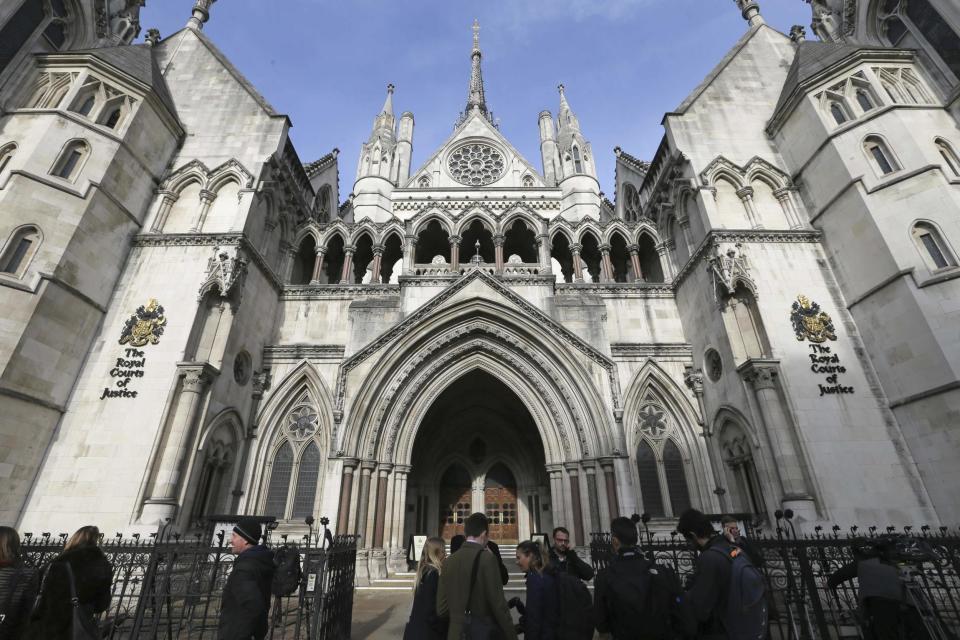Council powers to clear Traveller sites blunted by High Court

Powers of local councils to clear land being occupied by Travellers and Gypsies have been blunted by the High Court after it ruled final injunctions cannot be brought against unidentified people.
A collection of 38 cases from around England, including action brought by 16 London boroughs, were assessed by Mr Justice Nicklin in a bid to clarify the law on trespassing and unlawful camps.
The councils have used a variety of methods to eject Traveller groups from public land over the last few years, including through court orders, temporary injunctions, and in some cases being granted the power to arrest people who might be breaking the terms of a ban.
Those accused of breaching an injunction could have faced unlimited fines and up to two years in prison.
Councils say they have struggled to identify all occupants, relying instead on naming some of the community members and posting notices about legal action at the camp sites.
But in a ruling this morning, the judge found that local authorities must try to identify all the people they are seeking injunctions against or explain to the court why they cannot be named and served with a legal claim.
“If the court cannot identify the individuals who will be restrained by the injunction, it cannot begin to assess the particular circumstances of each person to be restrained, whether an injunction is necessary in that person’s case and whether the terms of the injunction are proportionate”, the judge said.
“It is difficult to see how the claimant would begin to demonstrate the required evidence of ‘irreparable harm’ if it cannot identify the persons who it claimed would cause it.”
An interim injunction has been in place at traveller sites in Ealing since May 2019, targeting “persons unknown occupying land… (and) depositing waste or fly-tipping”.
Havering Council obtained an interim injunction in September 2019 against 105 named individuals and “persons unknown”, accompanied by the power of arrest.
Richmond Council obtained an interim injunction in 2019 after posting a copy of its legal claim form at the sites being targeted.
Other councils involved in the case were London boroughs of Bromley, Croydon, Kingston and Greenwich, as well as councils in Birmingham, Canterbury, Essex, Rochdale, and Wolverhampton.
A series of the injunctions were discharged in autumn last year, when the judge made initial rulings that the courts had wrongly handed powers to councils.
Mr Justice Nicklin accepted that there could be exceptional circumstances where an emergency injunction against unknown people could be justified.
But today he concluded a court order could not be applied to “newcomers” who arrive at a camp site after the decision has been made.
And he said it is “fundamental to our process of civil litigation that the court cannot grant a final order against someone who is not party to the claim”.
He warned the courts were at risk of “moving from its proper role in adjudicating upon disputes between parties into, effectively, legislating to prohibit behaviour generally by use of a combination of injunctions and the court’s powers of enforcement.”
He ordered the discharge of injunctions against ‘unknown persons’ that were before him, unless the councils can urgently identify people that they should apply to.
In the future, town hall chiefs must describe any unnamed people they are taking action against “with sufficient certainty to identify those who are defendants to the claim and those who are not, and by reference to conduct which is alleged to be unlawful”.
He said local authorities must provide written arguments at a hearing with a fixed date when seeking an injunction, unless they can justify urgent hearing without notice.
The judge also said he was “minded” to remove the power to arrest from injunctions against unknown people that are currently in force, but was willing to hear further argument on the point.
“It is difficult to see how a court can be satisfied…that unidentified people, who have not yet even been present on the land, threaten conduct which consists of or includes the use or threatened use of violence, or that their actions present a significant risk of harm to others, sufficient to justify a power of arrest”, he said in his ruling.
The judge received submissions from the groups of local councils, as well as the Attorney General and groups representing Travellers and Gypsies.
Read More
On the Beach suspends sales of summer holidays amid travel uncertainty
Travel bosses lash out at ‘extremely disappointing’ green list
Border Force chief warns of long wait times for UK passengers

 Yahoo Sport
Yahoo Sport 





































